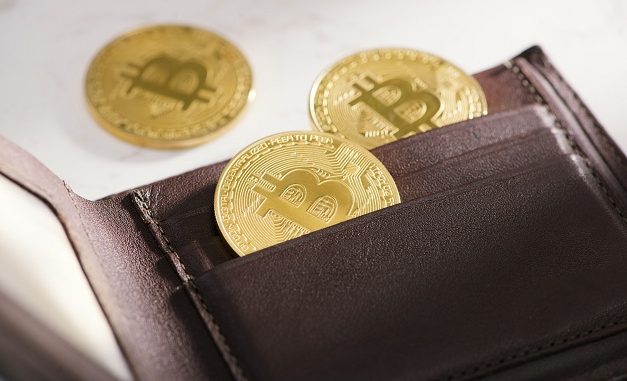
Key Takeaways
Bitcoin is a decentralised asset, yet large amounts are controlled by a select few
The top 114 addresses hold nearly 3 million BTC, 15.5% of the total supply
The anonymous Satoshi Nakamoto holds 5.2% of the supply
MicroStrategy hold 0.68% of the supply
Whether you love or hate Bitcoin, the world’s first cryptocurrency has thrown the word “decentralised” into the modern vernacular.
But while Bitcoin is the closest thing to a decentralised asset out there, it is worth noting that it does possess pressure points. Not central points of failure, but rather large holders who do possess significant amounts of the currency. In some cases, enough to cause a serious stir should those coins ever hit the market all at once.
Satoshi Nakamoto
The most obvious of the large holders is anonymous founder Satoshi Nakamoto. Whether one person or a group, Nakamoto possesses approximately 1 million bitcoins from the early days. That is equivalent to about 5.2% of the total supply – a very large number.
Nobody knows who Nakamoto is, but it is certainly a risk to have this amount of coins in the hands of one person/entity.
Coinbase even listed this factor as a risk to its business on its S-1 form when it went public in April 2021. Under the risk section, the company outlined “the identification of Satoshi Nakamoto, the pseudonymous person or persons who developed Bitcoin, or the transfer of Satoshi’s Bitcoins” as a risk to Bitcoin and, by extension, Coinbase’s business.
While speculating on Nakamoto’s identity is a fool’s game, and these coins could easily be lost forever, it is easy to see how Coinbase listed this as a risk on its filing. The fact is that one entity or person holds 5.2% of the supply, and nobody has any idea who.
Bitcoin whales
Looking beyond Nakamoto, there are plenty of wallets which contain a lot of Bitcoin. One study by the National Bureau of Economic Research outlines that the top 10,000 bitcoin investors control one-third of the total supply.
That figure is an estimate and is “likely an understatement since we cannot rule out that some of the largest addresses are controlled by the same entity”, according to the study. For example, it doesn’t include the aforementioned 5.2% of coins controlled by Nakamoto, as it cannot be known whether Nakamoto is one individual.
Seeing as Bitcoin returned the equivalent of 230% compounded annually between 2011 and 2021, and in doing so outperformed every major financial asset class in the world, perhaps it is not surprising that a small group of early adopters control significant amounts of the supply.
A $2,000 investment in 2010 would have netted you 10,000 bitcoins, which today is worth over $26 million. The select few who got involved in those early days and held onto their stash today hold significant amounts of the supply.
Today, only 114 addresses contain 10,000 BTC or more (with exchange addresses likely some of those) and those 114 addresses contain nearly 3 million BTC, or 15.5% of the total supply.
The below table shows quite how much Bitcoin is locked up in a small number of the top addresses.
Entities that hold large amounts of Bitcoin
Branching out from individuals, there are also entities which hold massive amounts of Bitcoin.
The first to spring to mind is Michael Saylor and MicroStrategy, who own 130,000 bitcoins, 0.68% of the total supply. This is the most by any public company and some fear that should this ever hit the market, then the Bitcoin price may be dented downward, such is the quantity of bitcoins that MicroStrategy hold.
While MicroStrategy is the public company which holds the most Bitcoin, the private Chinese company Block.one, which developed the cryptocurrency EOS, owns 140,000 bitcoins. This makes it the largest known holding by any one company.
MicroStrategy has purchased an additional 301 bitcoins for ~$6.0 million at an average price of ~$19,851 per #bitcoin. As of 9/19/22 @MicroStrategy holds ~130,000 bitcoins acquired for ~$3.98 billion at an average price of ~$30,639 per bitcoin.https://t.co/5kYW98ij4I
— Michael Saylor⚡️ (@saylor) September 20, 2022
Final thoughts
It is true that Bitcoin’s unique fundamentals make it a uniquely decentralised asset. The way the proof-of-work mechanism functions and the fact that no insiders started with any coins (even Nakamoto had to mine that stash) have helped make this decentralised quality a reality.
But despite this decentralisation, there do exist several big holders who hold enough coins that the market could be rocked, at least in the short-term, were anything to ever happen that led to those coins hitting the market.
The scale of Bitcoin’s rise has been so staggering that some of those early casuals who bought in for pennies are now in possession of monster stacks worth millions upon millions. As for Satoshi Nakamoto’s net worth in November 2021 at the Bitcoin all-time high? A cool $70 billion, good for 15th richest person in the world.




Be the first to comment